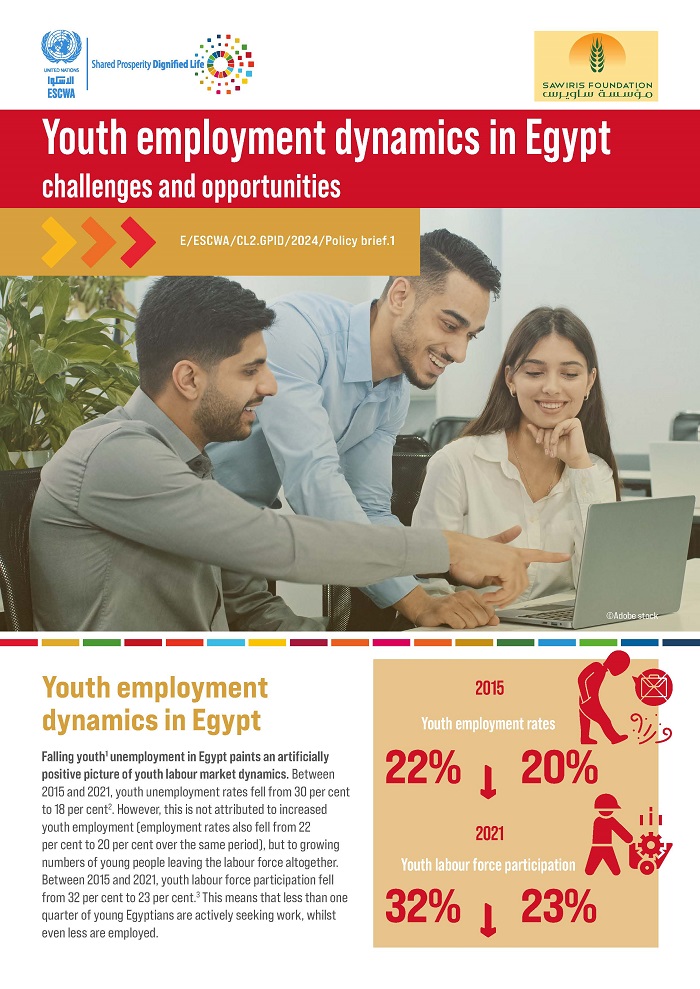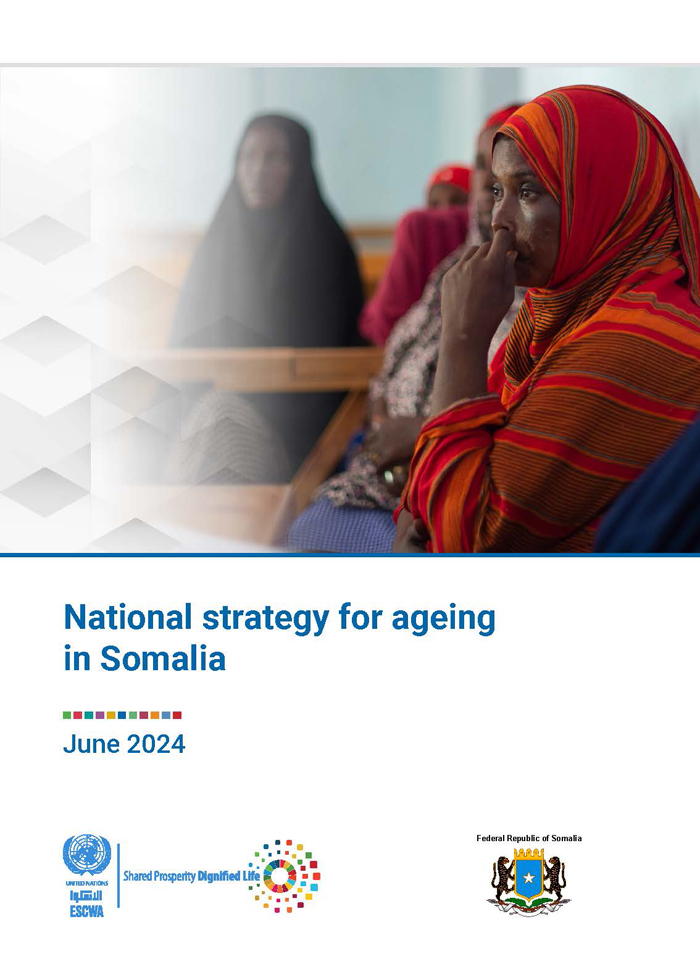
ESCWA Publication: E/ESCWA/CL2.GPID/2024/Policy brief.1
Country: Arab Republic of Egypt
Publication Type: Policy briefs
Cluster: Gender Justice, Population and Inclusive Development
Focus Area: Gender equality
Initiatives: Reducing inequalities, Women’s economic empowerment
SDGs: Goal 4: Quality Education, Goal 5: Gender Equality, Goal 8: Decent Work and Economic Growth, Goal 10: Reduced Inequalities, Goal 16: Peace, Justice and Strong Institutions
Keywords: Counselling, Egypt, Gender equality, Informal sector, Labour market, Training programmes, Vocational education, Vocational guidance, Youth employment
Youth employment dynamics in Egypt: challenges and opportunities
March 2024
The present policy brief examines youth employment dynamics in Egypt. It analyzes high youth unemployment, particularly for female youth and university-educated young people, and highlights how a decline in formal employment opportunities is pushing young people into informal employment, where they are excluded from social security and becoming vulnerable to underemployment and irregular work.
The policy brief shows, however, that university-educated young people can be employers that contribute to reducing youth unemployment if they are supported by an accommodative policy environment. It advocates for greater inclusion of young people and women in the formal labour market through targeted initiatives including prioritizing highly productive sectors, enhancing job placement services, and increasing investments in technical and vocational education.
Related content
Gender equality
,
The present policy brief examines youth employment dynamics in Egypt. It analyzes high youth unemployment, particularly for female youth and university-educated young people, and highlights how a decline in formal employment opportunities is pushing young people into informal employment, where they are excluded from social security and becoming vulnerable to underemployment and irregular work.
The policy brief shows, however, that university-educated young people can be employers that contribute to reducing youth unemployment if they are supported by an accommodative policy environment. It advocates for greater inclusion of young people and women in the formal labour market through targeted initiatives including prioritizing highly productive sectors, enhancing job placement services, and increasing investments in technical and vocational education.



